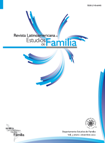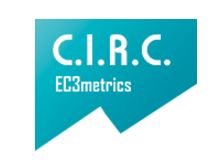Authors
Abstract
Abstract: Based on a strong ethnographic base, this work presents a theoretical critique that seeks to problematize the idea of adequacy of inclusion of the other, of difference, as a source for transformative strategies of social institutions and of culture, while otherwise such a strategy can neutralize the transformative potential that embodies subject positions and non-hegemonic narrative identities (the notion of homosexuality is abandoned). Indeed, the paper criticizes conceptions of romantic love and modern nuclear family that contemporary gay political movements are claiming, from inclusion as priority or exclusive political achievement, since in the process are trapped in the defense of modern institutions. The work suggests the importance of the gay movement considering the proposals of love, family and identity from the postmodern feminist critiques in order to strengthen their potential for cultural change.
References
Badinter, E. 1991. ¿Existe el instinto maternal? Historia del amor maternal. Siglos XVII al XX. Barcelona: Paidós.
Barry, A.2002.From Liberation to Transgression and beyond. En Handbook of Lesbian and Gay Studies, eds. D. Richardson y S.Siedman, 15-25. Gran Bretaña: Sage.
Braidotti, R. 2000. Sujetos Nómades. Argentina: Paidós.
Butler, J. 1990. Variaciones sobre sexo y género. Beauvior, Wittig y Foucault. En Teoría Feminista y Teoría Crítica, eds. S. Benhabib y D. Cornell, 193-211. Valencia: Edicions Alfons El Magnànim.
________. 1992. Contingent Foundations: Feminism and the Question of “Postmodernism”. En Feminist Theorize the Political, eds. J. Butler & J. Scott, 3-21. Nueva York: Routledge.
________. 1993. Imitation and Gender Insubordination. En The Lesbian and Gay Studies Reader, eds. H. Avelove, A.B. Barale y D. Halperin, 307-320. Estados Unidos: Routledge.
________. 1999. Subjects of Desire. Nueva York: Columbia University Press.
________. 2001. El género en disputa. El feminismo y la subversión de la identidad. México: Paidós UNAM-PUEG.
________. 2002. Cuerpos que importan. Sobre los límites materiales y discursivos del “sexo”. Barcelona: Paidós
Carlson, M. 2000. Resistant Performance. En The Routledge Reader in Politics and Performance, ed. L. Goodman, 60-65. Londres: Routledge.
Colombia Diversa. 2005. Situación de los derechos humanos de lesbianas, gays, bisexuales y transgeneristas en Colombia. Bogotá: Colombia Diversa.
Elia, J., Lovaas, K. y Yep, G. 2006. Introduction. Shifting Ground(s): Surveying the Contested Terrain of LGBT Studies and Queer Theory. En LGBT Studies and Queer Theory: New Conflicts, Collaborations and Contested Terrain, eds. K.E. Lovaas, J.P. Elia y G.A. Yep, 1-18. New York: Harrington Park Press.
Estrada, A.M. 2001. Los fragmentos del calidoscopio. Una propuesta teórico metodológica para el análisis cualitativo de las relaciones de género en la escuela. Revista Nómadas 14, 10-23. Santafé de Bogotá: DIUC - Universidad Central.
________. 2004. Dispositivos y Ejecuciones de género en escenarios escolares. En Pensar (en) Género.
Teoría y práctica para nuevas cartografías del cuerpo, eds. C. Millán y A.M. Estrada, 18-49. Bogotá: Universidad Javeriana - Instituto Pensar.
Estrada, A.M. y Báez-Silva, A.M. 2009. Retóricas eróticas disidentes. Universitas Psychologica 8(3): 653-672.
Gergen, K. 1992. El yo saturado. Dilemas de la identidad en el mundo contemporáneo. Barcelona: Paidós.
________. 1995. Social Construction and the Transformation of Identity Politics. En End of knowing: A new developmental way of learning, eds. F. Newman y L. Holzman. New York: Routledge. Versión electrónica, http://www.swarthmore.edu/SocSci/kgergen1/web/page.phtml?id=manu8&st=manuscripts&hf=1 (Recuperado el 31 de enero de 2009).
________. 1996. Realidades y relaciones. Aproximaciones a la construcción social. Barcelona: Paidós.
Giddens, A. 1995. La transformación de la intimidad. Sexualidad, amor y erotismo en las sociedades modernas. Madrid: Cátedra - Teorema.
Giraldo Botero, C. 2006. Historia en construcción. Hacia una genealogía de la homosexualidad en Colombia. En: J. F. Serrano (Ed.), Otros cuerpos otras sexualidades. Bogotá: Universidad Javeriana Pensar Goodrich, Rampage, Ellman y Halstead.1989. Terapia familiar feminista. Buenos Aires: Paidós.
Kimmel, M.S. 1997. Masculinity as Homophobia: Fear, Shame, and Silence in the Construction of Gender Identity. En Toward a New Psychology of Gender, eds. M. Gergen y S. Davis, 223-242. Estados Unidos: Routledge.
Kirsch, M. 2006. Queer Theory, Late Capitalism and Internilized Homophobia. En LGBT Studies and Queer Theory: New Conflicts, Collaborations and Contested Terrain, eds. J. Elia, K. Lovaas y G. Yep, 19-43. New York: Harrington Park Press.
Lamas, M. 1996. Usos y posibilidades de la categoría género. En El género: la construcción cultural de la diferencia sexual, comp. M. Lamas, 327-366. México: UNAM - Porrúa.
Llamas, R. 1998. Teoría torcida: prejuicios y discursos en torno a la homosexualidad. Madrid: Siglo Veintiuno de España Editores S. A.
Meler, I. 1998. Construcción de la subjetividad en la familia posmoderna. Un ensayo prospectivo. En Género y Familia. Poder, amor y sexualidad en la construcción de la subjetividad, comps. M. Burín e I. Meler, 373-398. Buenos Aires: Paidós.
Mouffe, Ch. 1993. Introduction. For an Agonistic Pluralism. En The Return to the Political, ed. Ch.Mouffe, 1-8. Londres: Verso.
________. 1996. Por una política de la identidad nómada. Debate Feminista 7(4): 3-13.
Richardson, D. y Seidman, S., eds. 2002. Handbook of Lesbian and Gay Studies. Gran Bretaña: Sage.
Rubin, G. (1993). Thinking Sex: Notes for a Radical Theory of Politics of Sexuality. En: H, Abelove, M. A. Barale y D. Halperin. The Lesbian and Gay Studies Reader. New York: Routledge.
Sampson, E. 1993. Identity Politics. Challenges to Psychology’s Understanding. American Psychologist 48(12): 1219-1230.
________. 1996. Celebrando al otro: una interpretación dialógica de la naturaleza humana. En Dominación social y subjetividad. Contribuciones de la Psicología Social, comps. T. Cordero, I. Dobles y R.
Pérez, 31-60. San José: Editorial de la Universidad de Costa Rica.
________. 2000. Reinterpreting Individualism and Collectivism. Their Religious Roots and Monologic versus Dialogic Person-Other Relationship. American Psychologist 55(12): 1425-1432.
Shotter, J. (s. f ). Toward a Third Revolution in Psychology: From Inner Mental Representational to Dialogical Social Practices. [First draft fort D. Bakhurst and S. Shanker (Eds.), Culture, Language, Self:The Philosophical Psychology ofJerome Bruner. London: Sage].
________. 2001. Realidades conversacionales. La construcción de la vida a través del lenguaje. Buenos Aires:Amorrortu.
Sluzki, C. 1996. La red social: frontera de la práctica sistémica. Barcelona: Gedisa.
Traverso-Yepes, M. 1998. La identidad nacional en Ecuador. Un acercamiento psicosocial a la construcción nacional. Quito: Biblioteca Abaya-Ayala.
Tronto, J. 1993. Moral Boundaries. A political argument for an ethic of care. Estados Unidos: Routledge

 PDF (Español)
PDF (Español)
 FLIP
FLIP




















